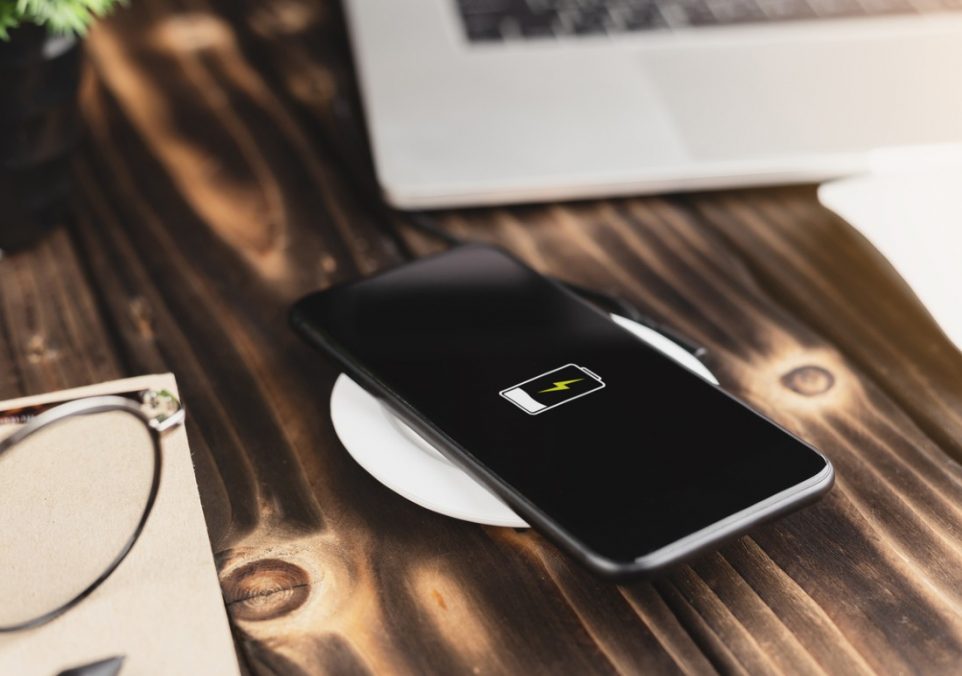Is Wireless Charging Better Than a Cable?

Remember the days when wireless charging was THE feature to look out for in phones? In fact, it was the most hyped and anticipated feature of the iPhone 8 and X lineups and contributed significantly to their sales.
Today, wireless charging is a staple in most high-end devices; and companies are continuously amping up the feature’s offerings to make their phones more desirable. So, what is it that makes wireless charging so sought after, and is it really better than cable charging? Well, let’s find out by diving right in!
The Benefits Of Charging Your Phone Wirelessly
Aside from looking dope, wireless charging boasts some really great benefits especially when it is stacked up against its cable cousins. So, let’s take a look at the three benefits that you can expect from a wireless charger:
Less Clutter
No one likes the clutter of cables and wires on their desk, right? Well, a wireless charging pad throws this dilemma out of the park by offering a compact pad that you can place anywhere on your desk or nightstand. A little wire snakes out of its back which can easily be tucked away and connected to the power strip.
Convenience
The concept of wireless charging is truly bonkers, no? You simply plop your device on a mat or pad, and it starts to juice up without you having to fidget with cables or having to unplug it every time you need to pick your phone up.
What we mean to say is that manufacturers literally bet all their RnD money on the idea that consumers would be willing to spend the extra dough for the simple convenience of not having to deal with the plugging in and unplugging part. Bonkers, like we said.
Nevertheless, it worked! Trust us, there is nothing handier than not having to deal with a cable every time that you’d like to check your phone. Talking about convenience, do you know that you can even integrate wireless chargers with your furniture? The future is now!
Longevity
Lastly, since you’ll not be using your phone’s charging port that often, it would see less wear and tear. Strained-out ports are pretty expensive to get repaired. This becomes a problem since nowadays most flagship phones do not offer headphone jacks so their charging ports also serve as headphone connectors.
The Drawbacks Of Using Wireless Chargers
You’ll have to sacrifice these two factors if you decide to go all wireless:
Efficiency
No, it’s not a myth! Wireless chargers ARE less efficient than cable chargers… at least for now. However, technologies like Samsung’s wireless fast charging and OnePlus’ warp charge are quickly drawing the battle lines to come out on top.
Wireless chargers are also generally more power-thirsty. They draw out more watt-hours from your sockets. This means that your phone has to juice up more to fill the same battery that requires less power when plugged in. Does that even make any sense?!
Dollar Signs
Phones that boast wireless chargers will almost always be more expensive than those that do not. This has something to do with the high costs of production. Wireless charging requires the integration of magnetic induction in a phone.
This handy technology that creates voltage out of a magnetic field costs money. Another thing that costs money is licensing the Qi charging. This industry-standard wireless charging technology is found in most big-brand smartphones and must be paid for.
In A Nutshell
So, what it all boils down to is that wireless charging is not necessarily better than a cable. Both modes of charging have their own benefits and drawbacks and so are suitable for different purposes. If you’d like faster charger times, you should opt for cable charging, and if you’d like convenience, then you should look no further than wireless chargers.
Your Trust, Our Core Commitment
At Rising Tech, earning and maintaining your trust is the cornerstone of our mission. We're dedicated to transparency, impartiality, and the relentless pursuit of truth in every article, review, and recommendation we publish. Our commitment to these principles ensures that you, our valued reader, are always equipped with reliable and unbiased information. Let us be your trusted guide in the ever-evolving world of technology.